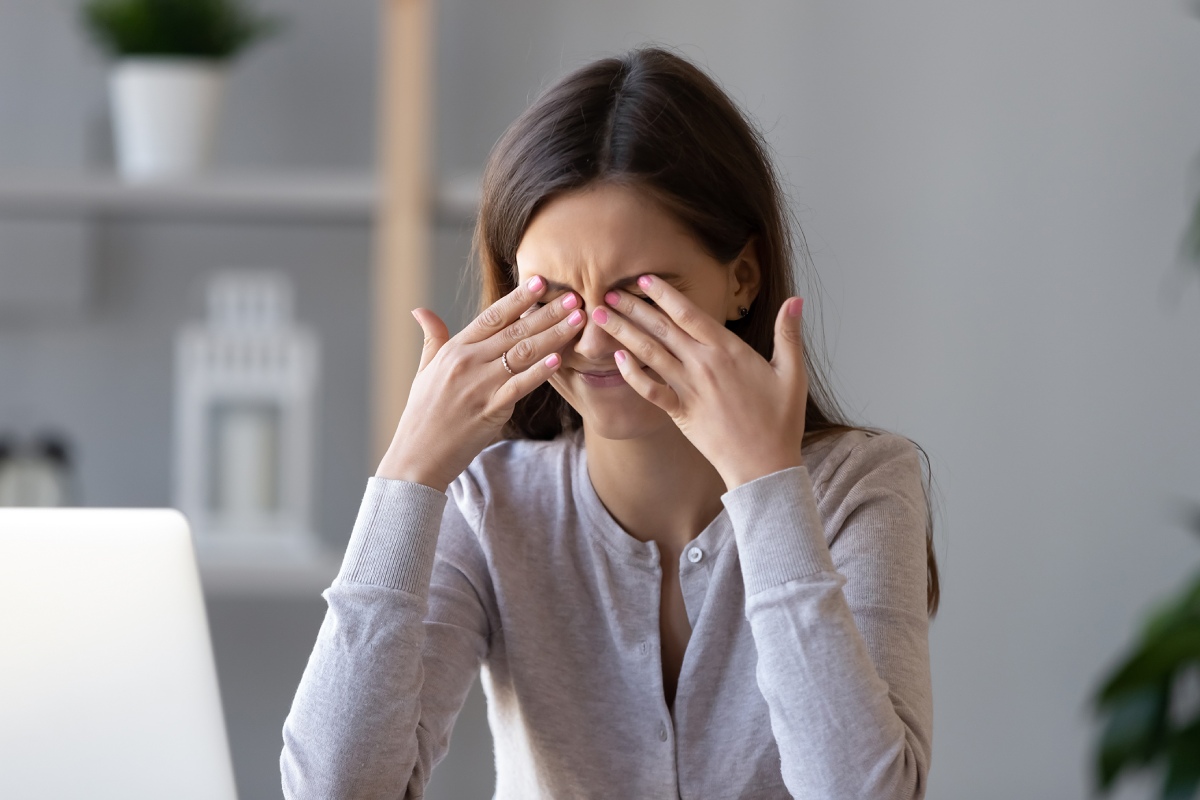Are your eyes constantly itching and making it difficult to focus on anything else? Itchy eyes are a common issue that many people experience, but the cause might surprise you. While you may assume it’s allergies or weather changes, it could be something else: dry eye syndrome. In this blog post, we’ll explore what dry eye syndrome is, its symptoms, common causes, and tips for treating it.
What is dry eye syndrome?
Dry eye syndrome happens when your eyes don’t make enough tears, or your tears evaporate too quickly. Common symptoms include redness, irritation, dryness, itchiness, light sensitivity, and blurry vision. Some people with dry eye may also feel like there’s something stuck in their eye or have trouble wearing contact lenses. Dry eye symptoms are usually mild, but severe cases can be painful and lead to complications.
Common causes of dry eye syndrome
Dry eye can be caused by many factors, including certain medications, an underlying medical condition, too much screen time, or wearing contact lenses for too long. While anyone can develop dry eye, people ages 50 and older are more likely to develop this condition. As we get older, our eyes produce fewer tears, increasing our risk of dry eye symptoms. Women are also more susceptible to dry eye due to hormonal changes that occur throughout their lives.
Tips for relieving dry eye syndrome
While there is no cure for dry eye syndrome, you can manage or even prevent symptoms with the right solutions. Non-prescription eye drops, also known as artificial tears, may be a good option if you have mild or occasional dry eye. These eye drops add moisture to your eyes to help relieve discomfort and improve tear stability. Your eye doctor may also suggest lifestyle changes to ease your symptoms and prevent potential complications, including:
- Avoiding air conditioning blowing directly into your eyes
- Using a humidifier to add moisture to the air
- Taking frequent breaks from screens
- Wearing sunglasses to protect your eyes from wind, dust, and sunlight
- Drinking plenty of water to stay hydrated
- Increasing your consumption of omega-3s and vitamins A, C, D, and E
In severe cases, your eye doctor may suggest more advanced treatment options like a deep cleaning of your eyelids and eyelashes to remove debris and irritants that could be contributing to dry eye. Other options include light therapy or heat therapy to unblock clogged meibomian glands, which is a common cause of dry eye.
If you’re dealing with dry, itchy eyes that just won’t go away, our experienced eye doctor is here to help. He’ll determine what’s causing your symptoms and recommend the best treatment for your specific case. Give us a call today to schedule an eye exam in Keene, New Hampshire.

